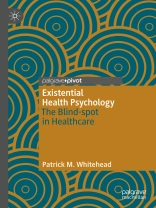This volume critiques the increasingly reductive, objectifying, and technologized orientation in mainstream biomedicine. Drawing on the methods of hermeneutic phenomenology and existential analysis in the work of Martin Heidegger, Kurt Goldstein, Medard Boss, and Hans-Georg Gadamer, the author seeks to expose this lacuna and explore the ways in which it misrepresents (or misunderstands) the human condition. Whitehead begins by examining the core distinction in the sociology of medicine between “disease” and “illness” and how this distinction maps onto a more fundamental distinction between the corporeal/objective body and the experiential/lived body. Ultimately, the book exposes the tendency in modern medicine to medicalize the human condition and forwards a reorientation framed by what the author terms “existential health psychology.”
Table of Content
1. Introduction: The Blind-spot in Medicine.- 2. A History of Medical Care.- 3. Reality and Medicine.- 4. Existence and Health.- 5. Medicalization.- 6. Existential Health Psychology.- 7. Post-Concussion Syndrome: An Exemplar.- 8. Conclusion: Caring for the Human Being—An Outline for
Applied Existential Health Psychology.
About the author
Patrick M. Whitehead, Ph D, is Assistant Professor of Psychology at Albany State University, USA












